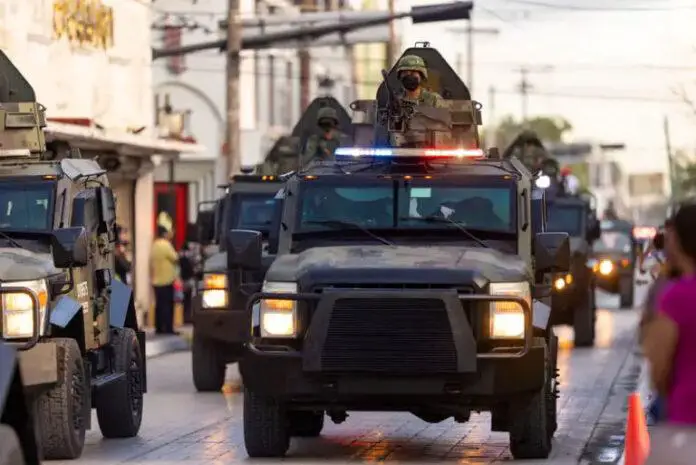On October 24, 2023, several armed conflicts occurred in different parts of Mexico, leading to the deaths of 24 people, including a number of police officers. This escalation highlights the safety concerns in areas of Mexico, especially those with strong drug cartel activity.
A security patrol in the municipality of Coyuca de Benitez, Guerrero state, faced an assault from an unidentified group. This attack resulted in 13 deaths, with 11 being municipal police officers. There are indications that a top state security official was part of the attacked convoy, but details about his status remain undisclosed.
At the same time, another violent incident took place in the neighboring Michoacan state. The mayor of Tacambaro’s brother was the apparent target of this attack. The assault caused the deaths of five people: a restaurant employee, one police officer, and three civilians. The mayor’s brother was injured. Some onlookers recorded the event, and a video later surfaced online showing the attackers shooting and then escaping in various cars.
A separate confrontation happened in San Miguel Canoa, a village in the Puebla state, about 75 miles from Mexico City. This clash, believed to involve suspected drug dealers, resulted in six deaths and two injuries.
The increasing frequency of such events is alarming. Since 2006, when the government decided to involve the military in the battle against drugs, over 420,000 people have been killed in Mexico. According to the non-profit group Causa en Comun, the number of police officers killed in 2023 has already surpassed 340.
The states of Guerrero and Michoacan are often associated with violent clashes between drug cartels and security forces. This volatile situation also influences politics, especially during election times. With the upcoming presidential and parliamentary elections next year, the increasing violence is a significant concern.
Despite being home to the popular coastal resort of Acapulco, Guerrero remains one of Mexico’s poorest states. The high crime and violence levels in the region are linked to its economic struggles.
President Andres Manuel Lopez Obrador, since his 2018 election, has promoted a “hugs not bullets” strategy, focusing on tackling crime’s root causes like poverty and lack of education. However, doubts persist about the effectiveness of this approach in reducing violence and crime.

